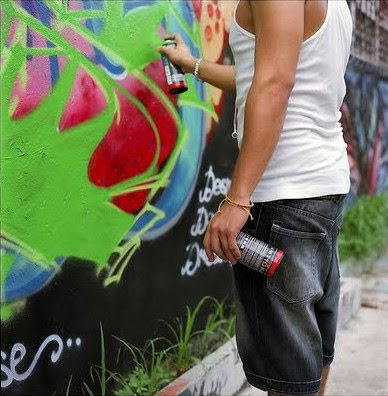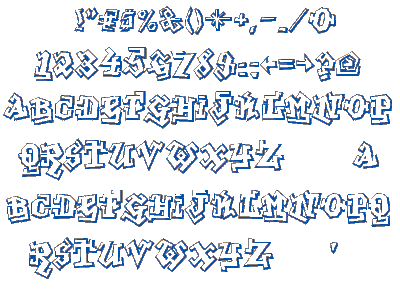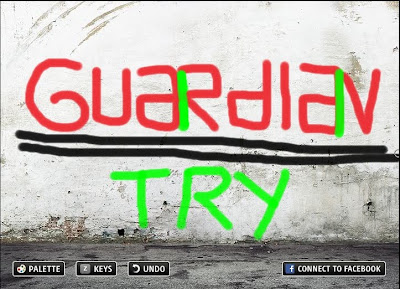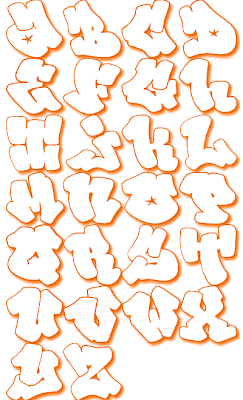The following tips on drawing / writing graffiti from sketch to coloring
graffiti on the wall

In particular the use of the bold style lettering is really distinctive to graffiti art. The images themselves will usually be hard hitting, and be painted in stark colours utilising strong shadows and outlines to add depth and definition. Images usually depict social or political issues close to the artist's heart.
Before you start a piece of graffiti art, you should draw a small scale version of the large piece you want to create first, then when you begin your actual piece, its a simple task of just scaling up your graffiti sketch.
If you need ideas for a graffiti font to use, there are plenty of sites online that have examples for you to copy. For the outlines, use a fine marker pen. In order to produce a 3D effect, shade around the letters you've outlined with a different colour. Then use permanent markers to colour in your letters.

Once you are ready to paint your sketch on to your larger canvas or wall, you need to draw a reference grid over your small drawing. Sketch a full size replica of the grid on to your wall or canvas that you are using for your scaled up graffiti piece. Use either chalk, charcoal or diluted paint to draw the large grid. To make marking the grid out easier, the simplest thing to do is to use a piece of string.
Use chalk or charcoal to transfer your small drawing on to you larger canvas. Use an aerosol can to paint the background in using diluted paint, keep the layer thin and allow it to dry before you start your colouring. When you've finished the outline and the background, it's time to add the colours and detail. Again use aerosols to add the colours. Start with the lightest colours first and the largest sections, and then move on to the detail and the smaller areas last.

When you've coloured your work in, you can add the fine definition with a brush to enhance the fine lines and borders around your figures and letters. You can preserve it for years to come with a thin layer of varnish.



















































